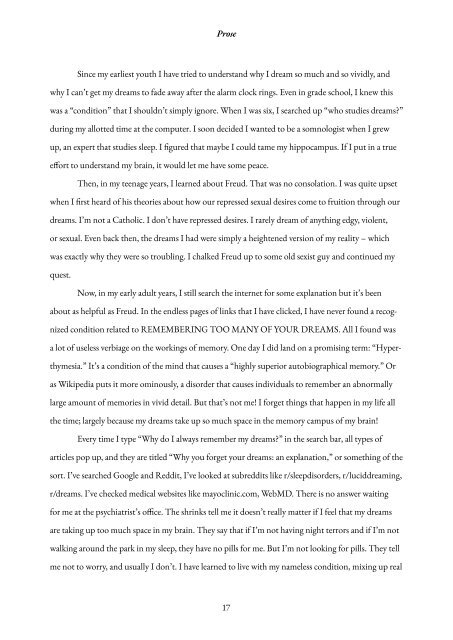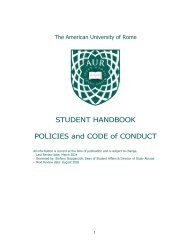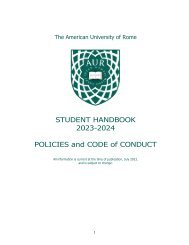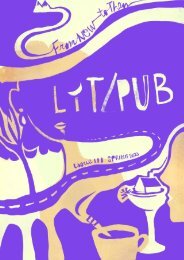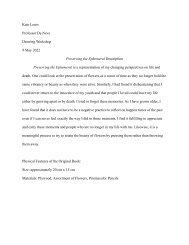Lit/Pub #IV - The Wake Up Issue - Spring2024
The magazine of Professor Andrea di Robilant literary class at The American University of Rome. "Last year’s issue of Lit/Pub was about the slow return to a post-Covid world. This year, the initial theme was dreams – time to get on with it and think about the future. But the more we discussed what to put in the issue, the more it became apparent that a lingering wariness was still in the air, even a certain complacency. Hence the exhortatory title – The Wake Up Issue – which Isabella Klepikoff has deftly captured in the design of this year’s cover: a wolf resting by a Roman fountain. He looks to be resting, but his lively green eyes tell us he is stirring back to action."
The magazine of Professor Andrea di Robilant literary class at The American University of Rome.
"Last year’s issue of Lit/Pub was about the slow return to a post-Covid world. This year, the initial theme was dreams – time to get on with it and think about the future. But the more we discussed what to put in the issue, the more it became apparent that a lingering wariness was still in the air, even a certain complacency. Hence the exhortatory title – The Wake Up Issue – which Isabella Klepikoff has deftly captured in the design of this year’s cover: a wolf resting by a Roman fountain. He looks to be resting, but his lively green eyes tell us he is stirring back to action."
You also want an ePaper? Increase the reach of your titles
YUMPU automatically turns print PDFs into web optimized ePapers that Google loves.
Prose<br />
Since my earliest youth I have tried to understand why I dream so much and so vividly, and<br />
why I can’t get my dreams to fade away after the alarm clock rings. Even in grade school, I knew this<br />
was a “condition” that I shouldn’t simply ignore. When I was six, I searched up “who studies dreams?”<br />
during my allotted time at the computer. I soon decided I wanted to be a somnologist when I grew<br />
up, an expert that studies sleep. I figured that maybe I could tame my hippocampus. If I put in a true<br />
effort to understand my brain, it would let me have some peace.<br />
<strong>The</strong>n, in my teenage years, I learned about Freud. That was no consolation. I was quite upset<br />
when I first heard of his theories about how our repressed sexual desires come to fruition through our<br />
dreams. I’m not a Catholic. I don’t have repressed desires. I rarely dream of anything edgy, violent,<br />
or sexual. Even back then, the dreams I had were simply a heightened version of my reality – which<br />
was exactly why they were so troubling. I chalked Freud up to some old sexist guy and continued my<br />
quest.<br />
Now, in my early adult years, I still search the internet for some explanation but it’s been<br />
about as helpful as Freud. In the endless pages of links that I have clicked, I have never found a recognized<br />
condition related to REMEMBERING TOO MANY OF YOUR DREAMS. All I found was<br />
a lot of useless verbiage on the workings of memory. One day I did land on a promising term: “Hyperthymesia.”<br />
It’s a condition of the mind that causes a “highly superior autobiographical memory.” Or<br />
as Wikipedia puts it more ominously, a disorder that causes individuals to remember an abnormally<br />
large amount of memories in vivid detail. But that’s not me! I forget things that happen in my life all<br />
the time; largely because my dreams take up so much space in the memory campus of my brain!<br />
Every time I type “Why do I always remember my dreams?” in the search bar, all types of<br />
articles pop up, and they are titled “Why you forget your dreams: an explanation,” or something of the<br />
sort. I’ve searched Google and Reddit, I’ve looked at subreddits like r/sleepdisorders, r/luciddreaming,<br />
r/dreams. I’ve checked medical websites like mayoclinic.com, WebMD. <strong>The</strong>re is no answer waiting<br />
for me at the psychiatrist’s office. <strong>The</strong> shrinks tell me it doesn’t really matter if I feel that my dreams<br />
are taking up too much space in my brain. <strong>The</strong>y say that if I’m not having night terrors and if I’m not<br />
walking around the park in my sleep, they have no pills for me. But I’m not looking for pills. <strong>The</strong>y tell<br />
me not to worry, and usually I don’t. I have learned to live with my nameless condition, mixing up real<br />
17


